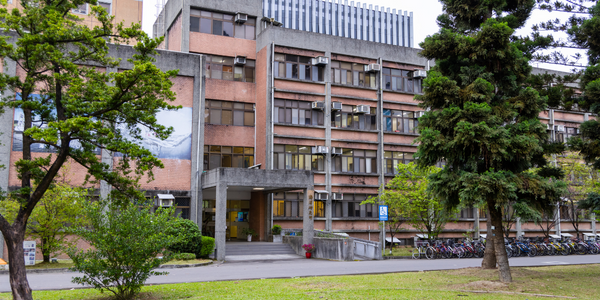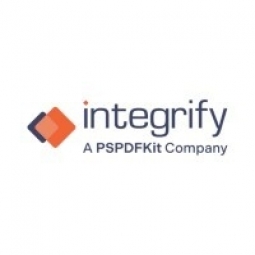Technology Category
- Cybersecurity & Privacy - Security Compliance
- Networks & Connectivity - 5G
Applicable Industries
- Buildings
- Transportation
Applicable Functions
- Logistics & Transportation
- Quality Assurance
Use Cases
- Inventory Management
- Time Sensitive Networking
Services
- System Integration
- Training
About The Customer
Cardinal Logistics Management, Inc., headquartered in Concord, NC, started as a common carrier in 1981 with 14 tractors. In July 1997, Cardinal Freight Carriers was purchased from its former parent company, ABF, by the Chicago-based private-equity firm GTCR Golder, Rauner. The company has grown significantly above the industry average due to its focus on dedicated delivery and logistics consulting, becoming one of the “Top 10 Logistics Providers” in North America as voted by readers of Inbound Logistics. As the company continued its rapid growth, it faced challenges in managing its operations efficiently and ensuring compliance with regulatory requirements.
The Challenge
Cardinal Logistics Management, Inc., a leading logistics provider in North America, faced significant operational challenges as it expanded. The company's traditional method of manually processing requests or using disjointed desktop databases for communication between field locations was becoming increasingly inefficient and disorganized. Each department had its own processes and preferred communication methods, which led to confusion and inefficiency. The company needed a standardized and streamlined process to manage workflow better, improve customer service, and continue its growth. Additionally, as the company prepared for its future public offering, it needed a system that would comply with the Sarbanes-Oxley requirements for publicly-held businesses. This included the need to verify all P&L input from employees at all levels of the company.
The Solution
Cardinal Logistics Management implemented Integrify’s software to automate its driver development and help desk processes. Integrify, a flexible business process management tool, allowed the company to automate requests and streamline approval processes. The software provided form creation, routing definition, and tracking tools to those responsible for processing requests, minimizing data entry and simplifying requests for approval and fulfillment. The software was web-based, allowing for easy user accessibility and management of approval processes. The solution eliminated problems typically related to labor-intensive processes such as manual paper handling and email requests, and could reduce costs per transaction by 60 to 90 percent as opposed to paper-based processes. In addition, Cardinal added Integrify’s SOX Assessments software to facilitate compliance with Sarbanes-Oxley regulations. This software allowed Cardinal to design, describe and publish corporate policy; automate the enforcement of internal controls, create a complete audit trail of control activities and automate and document risk assessments.
Operational Impact
Quantitative Benefit

Case Study missing?
Start adding your own!
Register with your work email and create a new case study profile for your business.
Related Case Studies.

Case Study
Energy Saving & Power Monitoring System
Recently a university in Taiwan was experiencing dramatic power usage increases due to its growing number of campus buildings and students. Aiming to analyze their power consumption and increase their power efficiency across 52 buildings, the university wanted to build a power management system utilizing web-based hardware and software. With these goals in mind, they contacted Advantech to help them develop their system and provide them with the means to save energy in the years to come.

Case Study
Airport SCADA Systems Improve Service Levels
Modern airports are one of the busiest environments on Earth and rely on process automation equipment to ensure service operators achieve their KPIs. Increasingly airport SCADA systems are being used to control all aspects of the operation and associated facilities. This is because unplanned system downtime can cost dearly, both in terms of reduced revenues and the associated loss of customer satisfaction due to inevitable travel inconvenience and disruption.

Case Study
IoT-based Fleet Intelligence Innovation
Speed to market is precious for DRVR, a rapidly growing start-up company. With a business model dependent on reliable mobile data, managers were spending their lives trying to negotiate data roaming deals with mobile network operators in different countries. And, even then, service quality was a constant concern.

Case Study
Digitize Railway with Deutsche Bahn
To reduce maintenance costs and delay-causing failures for Deutsche Bahn. They need manual measurements by a position measurement system based on custom-made MEMS sensor clusters, which allow autonomous and continuous monitoring with wireless data transmission and long battery. They were looking for data pre-processing solution in the sensor and machine learning algorithms in the cloud so as to detect critical wear.

Case Study
Cold Chain Transportation and Refrigerated Fleet Management System
1) Create a digital connected transportation solution to retrofit cold chain trailers with real-time tracking and controls. 2) Prevent multi-million dollar losses due to theft or spoilage. 3) Deliver a digital chain-of-custody solution for door to door load monitoring and security. 4) Provide a trusted multi-fleet solution in a single application with granular data and access controls.

Case Study
Intelligent Building Automation System and Energy Saving Solution
One of the most difficult problems facing the world is conserving energy in buildings. However, it is not easy to have a cost-effective solution to reduce energy usage in a building. One solution for saving energy is to implement an intelligent building automation system (BAS) which can be controlled according to its schedule. In Indonesia a large university with a five floor building and 22 classrooms wanted to save the amount of energy being used.







